February 02, 2021 | Christine Condon and McKenna Oxenden
Source:
The Baltimore Sun
By Christine Condon and McKenna Oxenden
A study by researchers at the University of Maryland School of Medicine suggests that people who have already had COVID-19 may not need both doses of the vaccine to be protected from the virus.
The emerging research comes as states, including Maryland, face continued vaccine shortages, leaving the growing list of eligible patients to scramble for few available appointments. But experts say that withholding second doses could present logistical obstacles for an already challenged process.
The study, which isn’t yet peer-reviewed, evaluated antibody responses to one dose of the Pfizer and Moderna vaccines among health care workers that had previously tested positive for COVID-19, compared to that of health care workers who hadn’t caught the virus. It included people who had experienced coronavirus symptoms during their infection and people who hadn’t.
The researchers’ findings indicated that, in times of vaccine shortage, patients who have had laboratory-confirmed coronavirus infections — whether or not they experienced symptoms — could justifiably only receive a single dose of the vaccines, and that those patients “can be placed lower on the vaccination priority list.”
As part of the study, researchers drew blood from the 59 participants on the day they got their vaccine, a week later, 10 days later and 14 days later.
“What we found was that the group that had COVID before had much higher antibody responses than the people who were not infected. It’s not surprising. That’s what the hypothesis was. But the reason why we think it’s particularly relevant is the shortage of vaccine,” said Dr. Anthony Harris, professor of epidemiology and public health at the University of Maryland School of Medicine, who co-authored the study alongside associate professor Dr. Mohammad Sajadi.
The study was funded by the Centers for Disease Control and Prevention, Harris said. And it’s continuing. The doctors are following the 59 participants as they get their second doses of the vaccines.
The early data is encouraging, said Gigi Gronvall, senior scholar at the Johns Hopkins Center for Health Security. But verifying prior COVID-19 infections in order to redirect second doses could be just another hurdle for a complicated vaccine rollout process that can’t handle many more, she said.
“Every wrinkle that you put into the logistics may make things a little bit more challenging,” Gronvall said.
For now, people eligible for the vaccine should follow the guidance of health officials and their health providers, she said — especially those who didn’t receive a positive test confirming that they had COVID-19, or only received an antibody test result.
“If you don’t know that you had COVID — if you weren’t diagnosed with COVID — don’t do self-diagnosis and then decide you don’t need the second shot,” Gronvall said.
Harris emphasized that the University of Maryland study needs to be replicated, but that it could be helpful for local and national officials as they try to determine how to distribute the vaccine with limited numbers. He said that while a two-dose regimen would be ideal, many places “don’t have that luxury.”
“The take-home message is basically that if you have a shortage [of vaccine] and if you as a government are trying to decide how to potentially more wisely use a limited number, we think that a single dose of vaccine for people who already have lab-confirmed COVID could be considered,” he said.
A study completed by researchers at Icahn School of Medicine at Mount Sinai in New York tells a similar story. That study found that the antibody response to the first vaccine dose in people who previously had COVID-19 is “equal to or even exceeds” the response after two doses in people who haven’t had the virus.
That study was a bit larger than the University of Maryland’s. It included 109 participants — 41 people who had been infected and 68 who hadn’t.
Withholding the second dose of the vaccine from people who’ve already had COVID-19 could also “spare them from unnecessary pain,” the researchers wrote.
Those with previous coronavirus infections reported side effects like fatigue, headache, chills, and fevers at significantly higher frequency than those who had never caught COVID-19, the study said.
Contact
Institute of Human Virology
Jennifer Gonzales
Public Relations & Communications Manager
jennifer.gonzales@ihv.umaryland.edu
Related stories
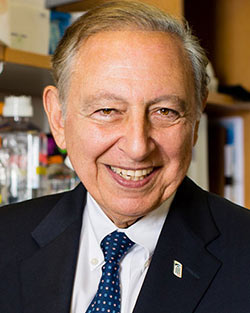
Tuesday, April 12, 2022
'Live' Polio Vaccine Fires Up Immune System Providing Protection from SARS-CoV-2 Infection
Two new studies from the Global Virus Network, including the University of Maryland’s Institute of Human Virology and in partnership with the Petroleum Industry Health Organization of Iran, provide evidence that getting the oral polio vaccine made from live, weakened polio-virus may protect people from COVID-19 infection by stimulating the immune system.
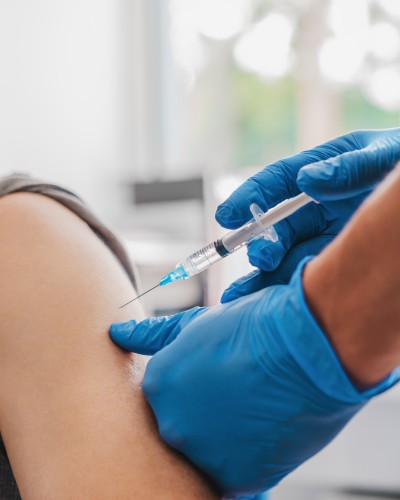
Tuesday, May 18, 2021
Institute of Human Virology Leadership Contributes to Global Virus Network Analysis Suggesting Measles, Polio and Tuberculosis Vaccines May Boost Immunity to Coronavirus
Institute of Human Virology at the University of Maryland School of Maryland scientists, who are also members of the Global Virus Network (GVN), a coalition comprised of human and animal virologists from 63 Centers of Excellence and 11 Affiliates in 35 countries, and colleagues today published a perspective proposing that live attenuated vaccines (LAVs), such as those for tuberculosis, measles, and polio, may induce protective innate immunity that mitigate other infectious diseases, triggering the human body’s natural emergency response to infections including COVID-19 as well as future pandemic threats.
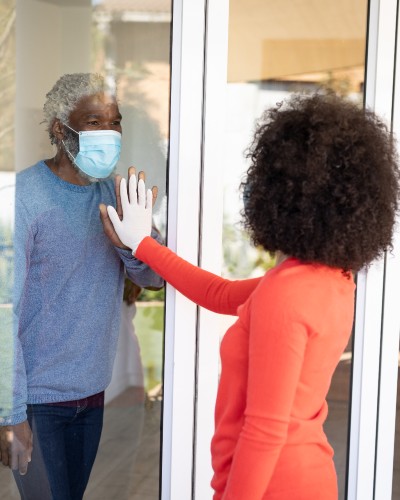
Thursday, April 01, 2021
Associated Press: Can I still spread the coronavirus after I’m vaccinated?
Can I still spread the coronavirus after I’m vaccinated? It’s possible. Experts say the risk is low, but are still studying how well the shots blunt the spread of the virus. The current vaccines are highly effective at preventing people from getting seriously sick with COVID-19.

Thursday, October 08, 2020
NPR: Could The Live Flu Vaccine Help You Fight Off COVID-19?
In case you were still procrastinating getting a flu shot this year, here's another reason to make it a priority. There's a chance the vaccine could offer some protection against COVID-19 itself, says virologist Robert Gallo, who directs the Institute of Human Virology at the University of Maryland School of Medicine and is chairman of the Global Virus Network.
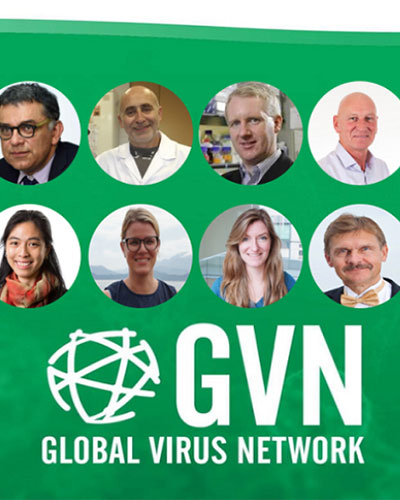
Wednesday, September 30, 2020
GVN’s Top Virus Experts Meet Together To Identify Most Promising Advances To Battle COVID-19 & Strategies To Prepare For Future Pandemics
Rapid Diagnostic Testing, Repurposing Drug Therapies and Vaccines Targeting Innate Immunity, Are Integral Factors in Mitigating COVID-19. The Global Virus Network (GVN), a coalition of the world’s leading medical and basic virology research centers working to prevent illness and death from viral disease, convened a press conference with attendees from across the globe to discuss key takeaways from the GVN virtual 2020 Special Annual Meeting held September 23-24, 2020.

Tuesday, September 29, 2020
NPR: Scientists Experiment With TB Vaccine To See If It Slows Spread Of COVID-19
As scientists race to develop a vaccine specific for COVID-19, some researchers are testing an old vaccine, that's been proven safe and is cheap to manufacture, to see if it could slow the pandemic.
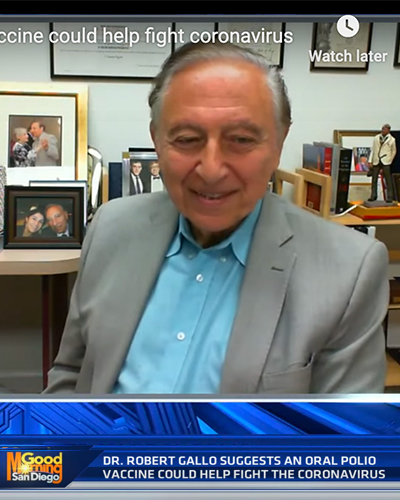
Friday, July 03, 2020
KUSI San Diego News: Dr. Robert Gallo suggests an oral polio vaccine could help fight coronavirus
Dr. Robert Gallo from the Institute of Human Virology at the University of Maryland School of Medicine and Global Virus Network wrote an op-ed in the Wall Street Journal earlier this week. The opinion piece stated that OPV, oral polio vaccine, could be a cheap and effective way to fight coronavirus. Dr. Gallo discussed his opinion piece on Good Morning San Diego.
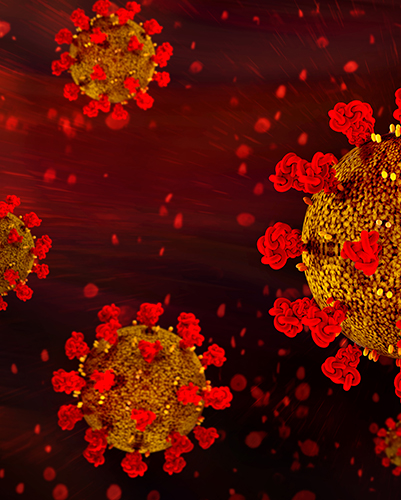
Thursday, July 02, 2020
13D Global Strategy & Research Report
COVID-19 outbreaks are multiplying and immunity may be short-lived. Could existing “live” vaccines, which stimulate innate immunity, outshine vaccines targeting the “spike” protein?

Thursday, June 25, 2020
The New York Times: Dr. Robert Gallo: The Case for a Stopgap Vaccine
In a letter to the editor to The New York Times entitled, "Dr. Robert Gallo: The Case for a Stopgap Vaccine," the noted virologist and head of the IHV says a polio vaccine may be an ideal solution until we find a Covid-specific vaccine.
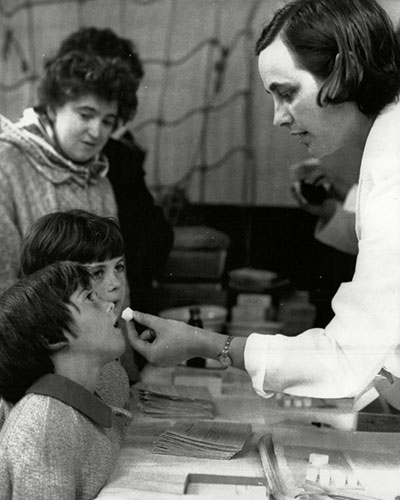
Wednesday, June 24, 2020
The New York Times: Decades-Old Soviet Studies Hint at Coronavirus Strategy
The New York Times: Decades-Old Soviet Studies Hint at Coronavirus Strategy: A married pair of virologists in Moscow tested a vaccine on their own children in the 1950s. Now, a side effect they found is sparking new hope for a defense against the coronavirus.
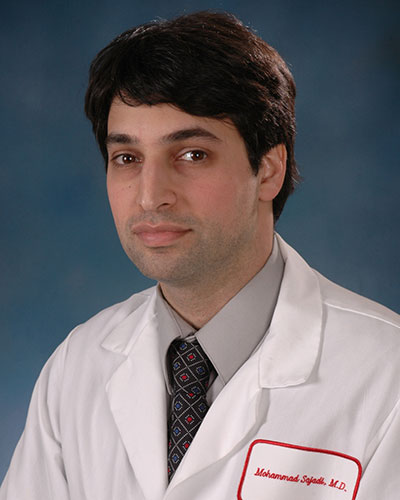
Tuesday, June 23, 2020
France 24: Dr. Mohammad Sajadi Speaks with France 24 on COVID-19 and Seasonality
Does Covid-19 spread faster in winter? Modelling by US researchers suggests the transmission of Covid-19 could be seasonal. Mohammad Sajadi, associate professor at University of Maryland School of Medicine's Institute of Human Virology, says the virus first spread in areas of low temperature and low humidity, common to winter time in temperate areas.
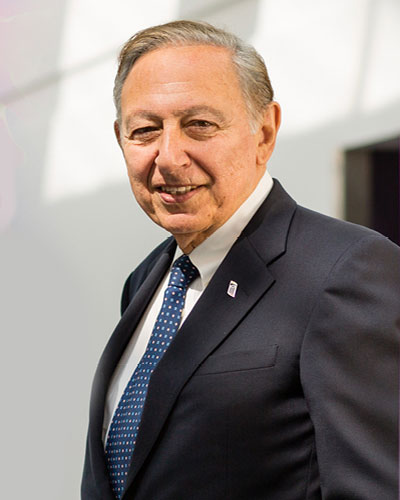
Friday, June 12, 2020
The Washington Post: We shouldn’t care who wins the vaccine ‘race’
Dr. Robert Gallo writes a Letter to the Editor to The Washington Post entitled, “We shouldn’t care who wins the vaccine ‘race’,” regarding their June 4 front-page article “Cold War echoes in race for vaccine,” about the “race” among nations, notably the United States, China, and Russia and other European nations for development of a vaccine against the novel coronavirus.
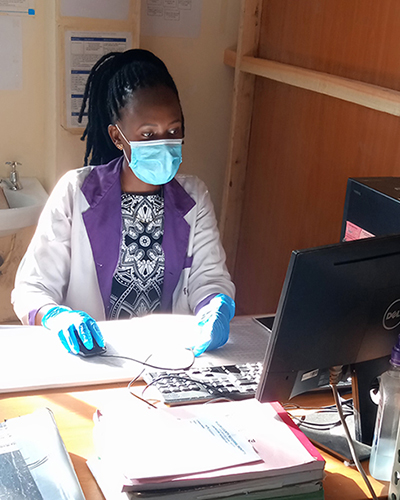
Tuesday, June 02, 2020
UM School of Medicine’s Institute of Human Virology Awarded Grants to Strengthen COVID-19 Response in Sub-Saharan Africa
The Center for International Health, Education and Biosecurity (Ciheb) at the University of Maryland School of Medicine’s Institute of Human Virology was awarded $4 million from the U.S. Centers for Disease Control and Prevention (CDC) to support coronavirus disease 2019 (COVID-19) response activities in Botswana, Nigeria, Malawi, and Mozambique.
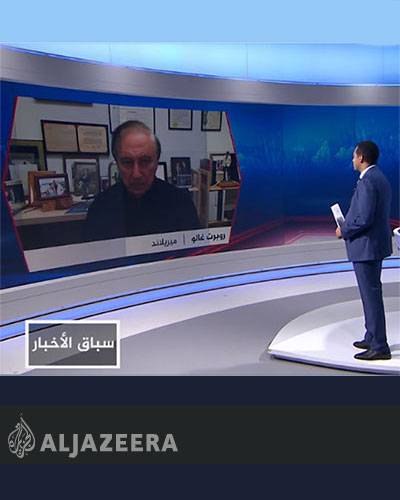
Saturday, May 09, 2020
Dr. Robert Gallo Discuss COVID-19 Research on Aljazeera News
Aljazeera discusses the status of therapy, testing and vaccine research on SARS-CoV-2/COVID-19 with Dr. Robert Gallo.
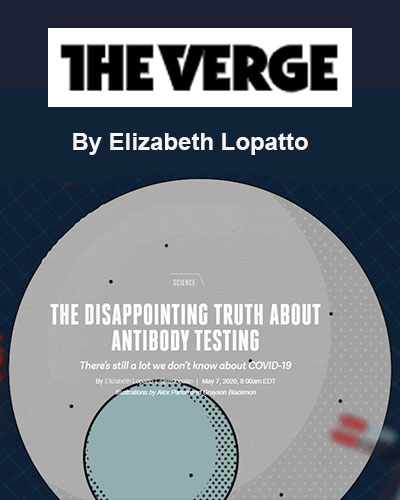
Thursday, May 07, 2020
The Disappointing Truth About Antibody Testing: There’s still a lot we don’t know about COVID-19
Dr. Robert Gallo discusses the status of COVID-19 antibody test with Vox's The Verge
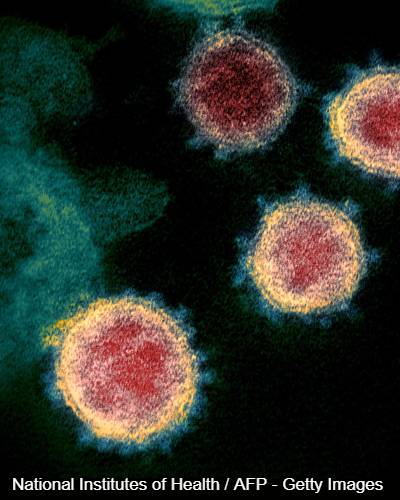
Wednesday, May 06, 2020
The Coronavirus Appears to have Mutated. What Does that Mean for Contagiousness?
While small mutations in the virus's genetic code are evident, it's unclear what these changes mean for people, if anything at all.
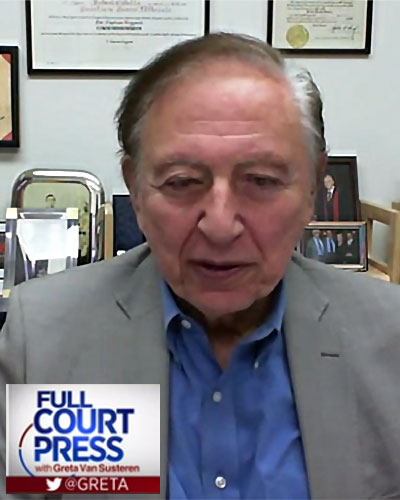
Saturday, May 02, 2020
IHV's Dr. Robert Gallo on FOX's Full Court Press with Greta Van Susteren
Overtime: Dr. Robert Gallo talks coronavirus treatments and antibody testing.

Saturday, May 02, 2020
Dr. Robert Gallo on iHeart Radio to Discuss COVID-19
Ryan Gorman hosts an iHeartRadio nationwide special featuring experts on COVID-19-related issues, including the co-founder and director of the Institute Human Virology at the University of Maryland School of Medicine, the senior vice president for U.S. Programs & Advocacy at Save the Children, and the managing editor of the Military Times. Topics range from a discussion about why some people infected by the coronavirus are asymptomatic, while others face severe reactions and even death, to assistance for impoverished children, and a breakdown of the impact the virus is having on the U.S. military and veterans.
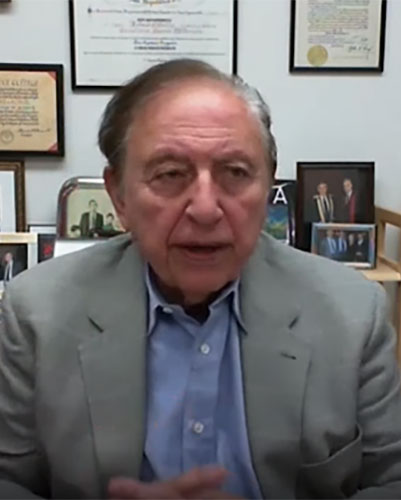
Friday, May 01, 2020
Could an Oral Polio Vaccine Stop the Coronavirus Pandemic?
A YouTube video by the American Chemical Society and produced by PBS.
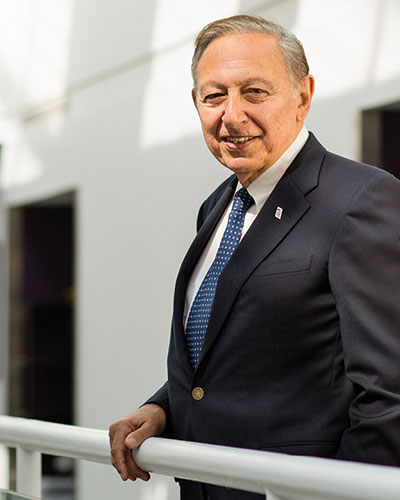
Friday, May 01, 2020
NYT Op-Ed Features Gallo-Chumakov Oral Polio Vaccine for COVID-19 Idea
What if We Already Have a Coronavirus Vaccine? Researchers are testing whether decades-old vaccines for polio and tuberculosis could protect against infection.
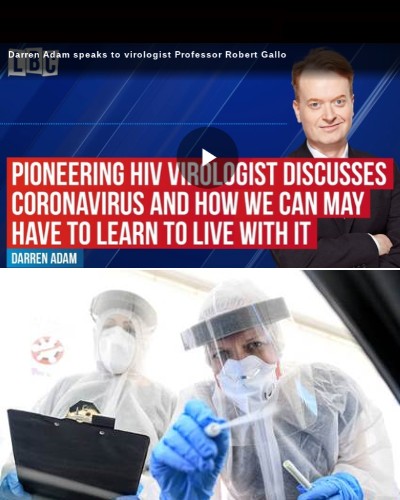
Monday, April 27, 2020
Expert Breaks Down Coronavirus Research: Is it Worse than HIV? Is it Mutating?
IHV Co-Founder and Director, Robert Gallo, MD is interviewed on LBC, a radio station in the United Kingdom. Darren Adam had Professor Gallo on the line to discuss his research in the past and the work he's carrying out during the coronavirus crisis. "We have learned to live with HIV" Darren began, listing out how it has changed from a death sentence to a disease that humans can live a long life with. He wondered if this could be possibly the path we're taking with Covid-19.

